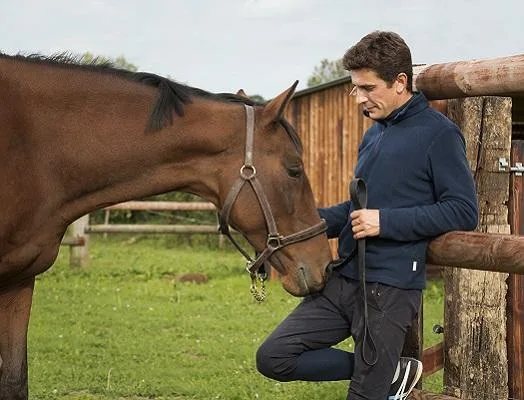Owning a horse is a rewarding experience, but it comes with great responsibility.
Horses are large, intelligent animals that need daily care, attention, and proper management. Being a responsible horse owner means providing for your horse’s physical, emotional, and mental well-being. Here are some key points on how to be a responsible horse owner.
1. Provide Proper Shelter
Horses need a safe, comfortable place to live. This means having a stable or shelter that protects them from harsh weather conditions, such as rain, snow, and extreme heat. A stable should be well-ventilated and have enough space for the horse to move around freely. It is also important to clean the shelter regularly to prevent the buildup of waste, which could lead to health issues.
2. Ensure Access to Clean Water and Food
One of the most important aspects of horse care is providing fresh, clean water and a balanced diet. Horses require access to water at all times. Dehydration can cause serious health problems, so make sure their water supply is clean and replenished regularly. When it comes to feeding, horses are herbivores and need hay, grass, or grain that meets their nutritional needs. Always consult with a veterinarian or equine nutritionist to ensure you are feeding your horse the right amount and type of food.
3. Provide Regular Exercise
Horses are active animals that need regular exercise to stay healthy and fit. Depending on your horse’s age, breed, and health, it may need daily exercise, such as riding, walking, or turn-out time in a paddock. Regular exercise keeps a horse’s muscles strong, helps maintain its weight, and improves its overall mental health. If you are unable to exercise your horse regularly, consider hiring a trainer or asking a stablehand to help.
4. Regular Grooming and Hygiene
Regular grooming is essential for a horse’s health and comfort. Brushing your horse helps keep its coat shiny, removes dirt and debris, and stimulates circulation. Grooming is also an excellent opportunity to check for injuries, cuts, or irritations on the skin. In addition to brushing, clean your horse’s hooves regularly to prevent infections and injuries. Hoof care is critical, so always ensure that a farrier is trimming the hooves on a schedule recommended by a professional.
5. Vet Care and Health Monitoring
Routine veterinary care is essential to keeping your horse healthy. Schedule regular check-ups with a veterinarian to ensure your horse is free from disease or injury. Vaccinations and deworming treatments are vital to preventing infections and parasites. Pay attention to your horse’s behavior and appetite as changes can signal underlying health problems. Promptly address any issues with a vet before they become serious.
6. Maintain Safe Equipment
Horses need appropriate tack, such as saddles, bridles, and harnesses, to ensure they are comfortable and safe during riding or work. Inspect all equipment regularly to make sure it is in good condition and free from damage. Improperly fitting equipment can cause discomfort, pain, or injury to your horse. If you’re unsure how to fit tack properly, seek guidance from a professional.
7. Social and Emotional Care
Horses are social animals that thrive in the company of other horses or animals. Keeping a single horse isolated for too long can lead to boredom and anxiety. Whenever possible, try to provide your horse with a companion or allow it time to interact with other horses. Spending quality time with your horse, whether through grooming, hand-walking, or simply being with them, will help strengthen the bond between you and provide emotional well-being for your horse.
8. Train and Educate Your Horse
Training your horse is not only essential for safety but also for building trust and a strong relationship. Regular training sessions will help your horse understand commands, behavior expectations, and tasks. It’s important to use positive reinforcement methods such as praise, treats, or gentle corrections. Training should always be consistent, fair, and gentle to avoid causing stress or fear in the animal.
9. Financial Responsibility
Owning a horse can be costly. In addition to the initial cost of purchasing the horse, there are ongoing expenses such as feed, veterinary care, farrier services, insurance, equipment, and boarding. Make sure you budget for these expenses and have a financial plan in place before getting a horse. Unexpected costs, such as emergency vet bills, can arise, so it’s important to be prepared.
10. Prepare for Emergencies
As a responsible horse owner, you should be prepared for emergencies. This includes knowing how to handle common injuries, such as cuts, bruises, or colic. Have a first-aid kit for horses on hand and know how to use it. Familiarize yourself with the nearest emergency veterinary clinic, and have a transport plan in place in case your horse needs urgent medical attention.




